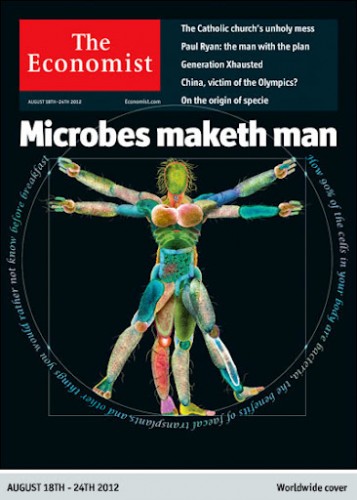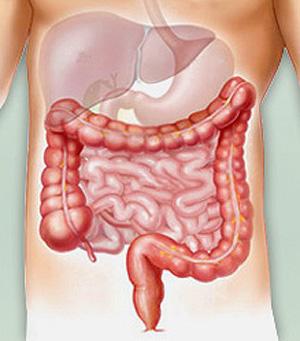MICROBES MAKETH MAN
Happy Tuesday to You!
Well, it’s lovely to be home again!
As I’ve shared in recent blogs, Toronto was a beautiful experience. Rory was an excellent host as usual, and his Mother did a great job of providing us with lovely food. Rory’s mom and dad were also gracious enough to drive Penny to the airport yesterday too. We couldn’t get flights together so had to travel different routes.
I got to LA just fine. Penny’s connecting flight to LA was delayed by late departure from Toronto and she barely made her flight. We met in LA and were excited to get home and relax. As it goes with jet travel these days, they announced that our flight had been canceled without any reasonable explanation. All the flights for the remainder of the night were sold out and they offered us a shuttle buss ride to Carlsbad airport.
We went down to collect our luggage, and all too commonly, my bag didn’t make it!even though I was flying business class with priority bag tags; this has happened to me several times in the last couple years on United!
There were four others without bags too. After all the fluffing about trying to figure out what to do with our strange circumstance, the flight attendant lady told us to file for our missing bags in Carlsbad. Just as we were about to walk out, my lonely bag came out of the shoot! What a relief!
We had a long ride with traffic to Carlsbad where Vidya picked us up and ended by getting home about 8:00 PM instead of the scheduled 5:15 PM. We were grateful to be home even though we felt as though we’d just arrived in from New Zealand instead of Toronto!
It’s great to be home and see my plants, stones, and be in my own nest! Sometimes a little travel stress makes coming home even more beautiful; but that’s not my preferred method of recognizing beauty ☺.
MICROBES MAKETH MAN

While killing time in the LA airport, I happened to see the current edition of The Economist while buying a bottle of Evian. The headline read, “Microbes Maketh Man”, and the title image was wrapped with text stating: “How 90% of the cells in your body are bacteria, the benefits of fecal transplants, and other things you would rather not know before breakfast.” I had to look inside.
The article is quite good. It reflects much of the research I’ve done on my own while developing my parasite protocols and deepening my understanding of microorganism function and behaviors in the human body-mind.
The article does a great job of highlighting current research and shows that not only do the friendly (symbiotic) bacteria provide many health benefits such as the manufacture of some of the B vitamins and aiding in the digestion of plant fiber; it doesn’t mention that the lactic acid produced by friendly bacteria stimulate peristalsis or the wave-like contractions of the intestinal tract.

Our intestinal tract is home to the majority of our bacterial friends. The average person has between 1.5 and about 5 pounds of bacteria in their body at any given time depending on a variety of circumstances, such as your diet and stress levels.
Most of us are aware of the fact that pathogenic bacteria such as E coli in meat can cause both illness and disease. The current research highlights the fact that there are a wide variety of bacterial strains that can cause both illness and physiological upset.
In the excellent book, Dr. Jensen’s Guide To Better Bowel Care, Dr. Bernard Jensen shows research that informs us that the average person’s bacterial ratio is “inverted.” A normal ratio of friendly to unfriendly bacteria is 85:15.
Studies of large population samples showed that the ratio was reversed, 15% friendly to 85% unfriendly bacteria. This becomes a viable source for many potential health challenges and disease conditions, as you can imagine.
The challenges with unfriendly bacteria in our food, and their over-population of our bodies is largely due to food processing and commercial farming (in my opinion).
There are a variety of good natural sources of friendly bacteria, or “probiotics” available to you without having to buy them in pills or bottles. Here are some examples:
1. Yogurt/Kefir made from organic, unpasteurized cows, sheep or goats milk. My advice is to make your own. You can find a good yogurt maker in many stores and keep a healthy stream of friendly bacteria coming into your body.
2. Sauerkraut is a fermented food that is also a good source of friendly bacteria.
3. Pickles are another good source, but again, are likely to only be as good as the source materials. Making your own increases the likelihood that you will get a good dose of friendly bacteria. I don’t have time to make my own, but buying certified organic pickles is a good option!
4. Kimchi is an Asian fermented food that aids digestion and delivers probiotics as well. I love it and use it regularly.
5. Kombucha Tea is a fermented tea with a great dose of probiotics. My favorite brand is “Ricks GTS Kombucha” and it’s also a great detoxifier!
There are many others that you can find easily in books or web searches if you like.
In my next blog (on this topic), I’ll share a little more about microorganisms, plants, and some of the research you may want to know about with regard to how interconnected we are with the entire web of life.
I suspect most of you will be quite surprised.
If you get a chance to read the article I’ve sited in The Economist, I think you’ll find it very interesting and educational.
I hope you all have a beautiful day. I’m off to a business meeting and then some rock stacking!
Love and chi,
Paul Chek














Find me on the web